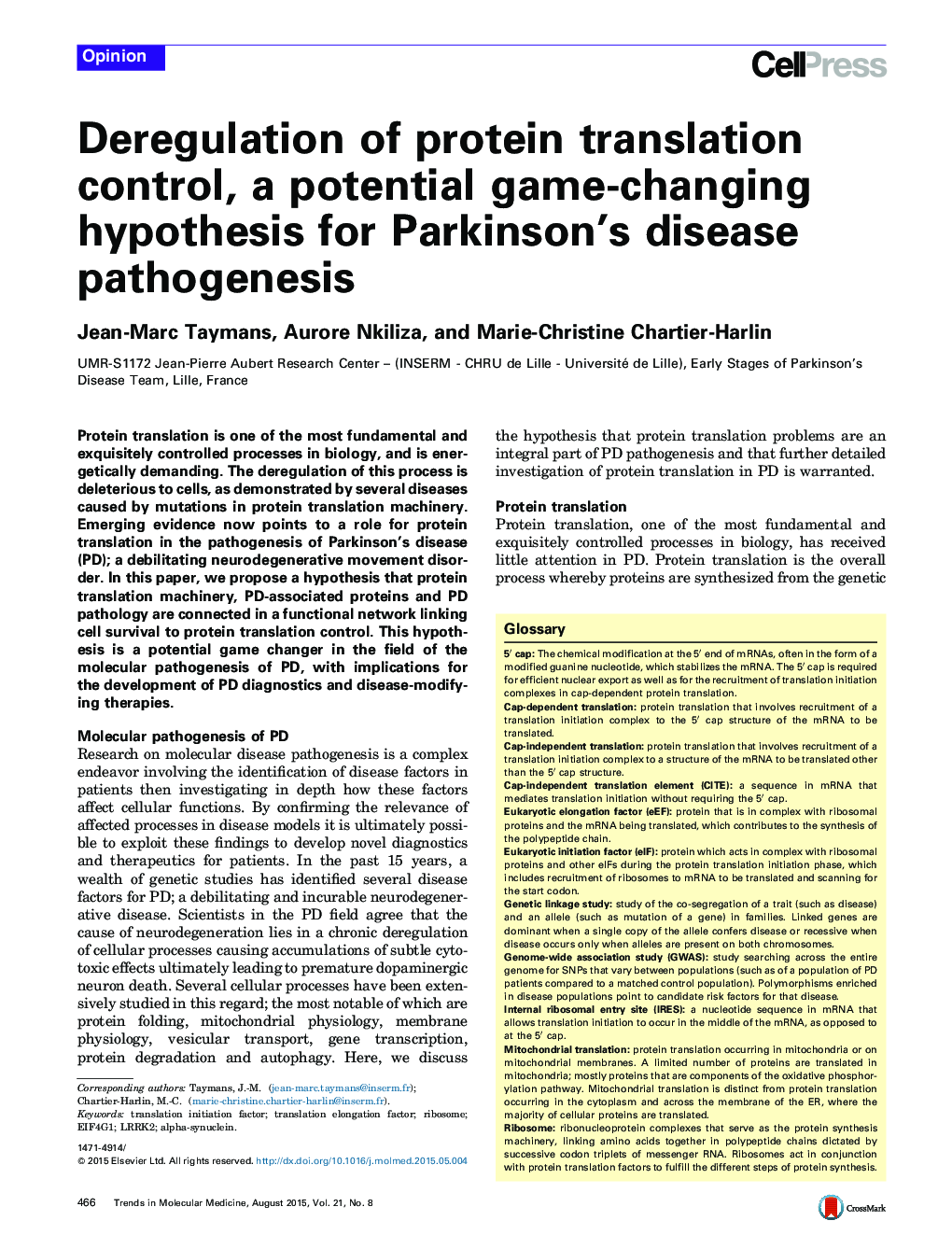| Article ID | Journal | Published Year | Pages | File Type |
|---|---|---|---|---|
| 2838383 | Trends in Molecular Medicine | 2015 | 7 Pages |
•Parkinson's disease (PD) proteins deregulate protein translation processes.•We propose a hypothesis linking cell survival to protein translation control in PD.•The hypothesis has implications for the development of PD diagnostics and therapies.
Protein translation is one of the most fundamental and exquisitely controlled processes in biology, and is energetically demanding. The deregulation of this process is deleterious to cells, as demonstrated by several diseases caused by mutations in protein translation machinery. Emerging evidence now points to a role for protein translation in the pathogenesis of Parkinson's disease (PD); a debilitating neurodegenerative movement disorder. In this paper, we propose a hypothesis that protein translation machinery, PD-associated proteins and PD pathology are connected in a functional network linking cell survival to protein translation control. This hypothesis is a potential game changer in the field of the molecular pathogenesis of PD, with implications for the development of PD diagnostics and disease-modifying therapies.
